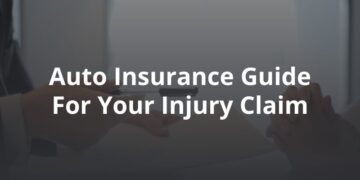This is one of the most common questions we receive from potential clients, and, unfortunately, there is no perfect answer. While nobody wants to see their insurance premiums go up after a car accident, whether it makes sense to file a claim on your own insurance depends on the factors and circumstances of each case.
But, by understanding the basic pros and cons, you can make a smart decision about the best course of action in your particular situation.
If the accident was your fault
One of the most important factors in deciding whether to file a claim on your own insurance after an accident is whether the accident was your fault. In that situation, your choices are limited. For the damage to your property, you can choose to either: 1) not repair the damage; 2) pay cash to repair the damage; or 3) file a claim on your insurance if you have collision coverage.
Paying cash to repair the damage can be most helpful if your car was the only property damaged since this would prevent your insurance company from paying any money for the damage. By doing so, you can probably avoid any change in your insurance premiums, or having a claim noted on your insurance profile. However, depending on the amount of damage done, this might be prohibitively expensive, making it better for you to just make the claim.
The main concern most people have with filing a claim on their own insurance policy after causing an accident is the risk of increased rates or cancellation. There is no perfect science to determining whether your rates will increase by filing a claim.
Generally, this decision is made by underwriters at the insurance company and depends on a variety of factors, such as how severe the accident was, your driving history, and whether your specific insurance policy offers some type of accident forgiveness plan. Furthermore, the Texas Department of Insurance Consumer Bill of Rights dictates that, as long as your initial insurance policy has been in effect for 60 days, your insurance company cannot cancel your policy during your period of coverage just because you caused an accident.
However, depending on the risk factors you present because of your driving history, your insurance company can choose not to renew your coverage at the end of your policy period.
If the accident was not your fault
If somebody else caused the accident, the decision whether to file a claim for the damage to your car with your own insurance company is much different and really depends on whether the other driver’s insurance carrier is accepting fault. Even so, you should be careful when dealing with the other driver’s insurance, since they are not on your side.
After a car accident, the insurance companies are allowed to conduct a reasonable investigation to determine who was at fault. Usually, the insurance company will rely on police investigation materials, witness statements, and statements from the drivers and passengers involved in this decision.
Sometimes, the driver who caused the crash will confess to their own insurance company, but sometimes they refuse to tell the truth. Furthermore, it can take weeks for the police investigation materials to be complete, which can delay the insurance company’s evaluation of fault.
When the other driver’s insurance company has already accepted fault, you can choose whether to process the property damage claim through them, or through your own insurance company. The main concerns with allowing the other driver’s insurance company to handle the claim include their desire to have you provide a recorded statement (which is very rarely a good idea), and the simple fact that they are not your insurance company, so you don’t have a contract with them that determines your respective rights and responsibilities.
So, if they start hassling you or treating you unfairly, your options to retaliate are minimal. By filing a claim with your own insurance, the terms of your contract dictate your rights and responsibilities, and there is less of a chance you will be treated unfairly. However, if you do not have rental car coverage on your policy, it can be beneficial to handle your property damage through the other driver’s insurance carrier, since they will put you in a rental car for a reasonable amount of time.
If the other driver’s insurance company has not accepted fault, the decision is much more complicated. Because the other insurance company will investigate the claim, they will pressure you into giving a recorded statement. This is usually a bad idea, and can really harm your case down the road.
By filing a claim with your own insurance company, you can ask that any statement not be recorded, which keeps that conversation private. Additionally, because you have a contract with your insurance company, they will act promptly and diligently to take care of your damaged property, which is not guaranteed by the other company.
On the other hand, filing a claim on your own insurance policy might result in an increase of your insurance premiums (depending on the factors listed above), and might require you to pay a deductible (though you will generally get your deductible back when your insurance company recovers money from the other insurance company).
Deciding whether to file a claim with your own insurance company becomes much more complex if you’ve been hurt in a car accident. In that case, it is a good idea to consult with a reputable Austin car accident lawyer who, during a no-cost consultation, can help explain your rights and options more thoroughly, depending on the facts and circumstances of your individual case.
There are a variety of insurance coverages you might have purchased that are important to understand so you can make the best decisions possible moving forward. Whether you’re dealing with medical expenses, lost wages, or other damages from an accident, consulting with an experienced Austin personal injury lawyer can provide clarity on how to navigate your insurance policies and seek appropriate compensation. Contact FVF Law Firm – Injury & Wrongful Death Lawyers today.





